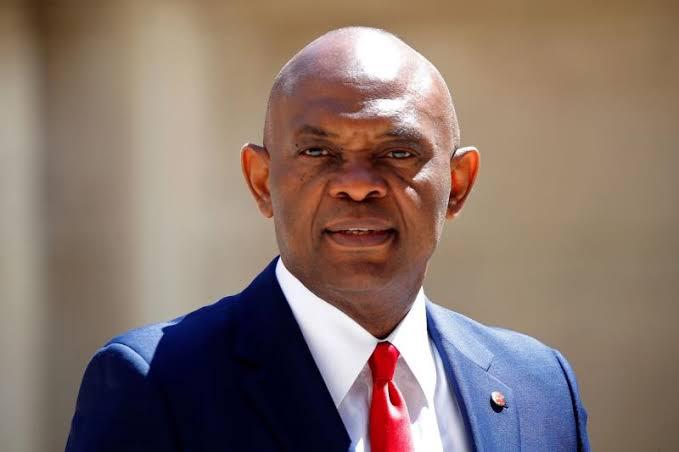
The Chairman of Heirs Holdings, Mr Tony Elumelu, has stressed the need for increased oil production to fund Nigeria’s economic diversification and development.
Speaking on Thursday in Abuja at the Nigeria Petroleum Industry Leadership Discourse, he emphasised the importance of oil revenues in driving industrialisation, energy security, and infrastructural growth.
The meeting, convened by Heirs Energies, which is under the aegis of Heirs Holdings, was themed “Nigeria’s Oil Production Growth Roadmap: Acceleration Imperatives”.
The gathering brought together key industry players, including representatives from OPEC, SEPLAT, Shell, Oando Energy, the Nigerian National Petroleum Company Limited, and the Nigerian Upstream Petroleum Regulatory Commission, to discuss strategies for increasing Nigeria’s oil production.
Among those present were the Minister of State for Petroleum Resources (Oil), Senator Heineken Lokpobiri; Chief Executive Officer of the Nigerian Upstream Petroleum Regulatory Commission, Mr Gbenga Komolafe; and Chairman of the Organisation of Petroleum Exporting Countries Board of Governors, Mr Ademola Adeyemi-Bero.
Elumelu, who is also the Chairman of United Bank for Africa and Transcorp Group, said that despite global conversations around energy transition, Africa’s priority should be energy security.
He stated that massive investment in oil and gas is necessary to power industries, support businesses, and ensure access to electricity for households and enterprises.
He noted that he is no longer a banker but an investor, adding that his company, Heirs Energies, which acquired OML 17 from Shell a few years ago, currently produces 53,000 barrels of oil per day.
He expressed concerns about Nigeria’s oil production levels, stating that while output had improved under President Bola Tinubu’s administration, the country was still underperforming compared to its OPEC quota.
He recalled that during the Buhari administration, Nigeria’s oil production dropped below one million barrels per day.
While production has now recovered to 1.8 million barrels per day, he insisted that the country must aim for more than 2 million barrels per day to generate the revenue needed to develop and diversify the economy.
He said, “You know, under Buhari’s administration, we dropped less than 1 million barrels. We are happy that under the current administration, in general, we produce 1.8 million barrels of oil a day. But we are not satisfied with that figure.
“We want to take it to over 2 million. Because we know that we need oil money to diversify Nigeria away from oil. And we need to have the money to help develop our country.”
Elumelu said that increasing oil production was key to generating foreign exchange, stabilising the naira, and improving national security.
He added that boosting crude oil output would provide the financial resources required for industrialisation and infrastructure development, particularly in the power and manufacturing sectors.
He noted that despite having the highest power generation capacity in the country at 2,000 megawatts, Transcorp Power was constrained by gas shortages.
He said that by increasing gas production alongside oil, industries would have the fuel needed to operate at full capacity, power generation companies would be able to increase electricity supply, and Nigerians would enjoy improved access to electricity.
The billionaire investor urged stronger collaboration between the government, industry players, and investors to achieve the target of increasing oil production to 2.5–2.7 million barrels per day.
He acknowledged that recent policy reforms and executive orders signed by President Tinubu had improved investor confidence, security, and the overall business environment in the oil sector.
He cited Heirs Energies as an example of what indigenous operators could achieve with the right support, revealing that production at OML 17 had increased from 21,000 barrels per day under Shell to 53,000 barrels per day since Heirs Energies took over the asset.
On whether Heirs Energies had plans for oil refining, Elumelu said the company intended to integrate downstream operations in the future but was currently focused on expanding crude oil production.
He said that once a company has crude oil, which is the raw material, transitioning into refining, fertiliser, and petrochemicals becomes easier.
He disclosed that Heirs Energies aims to increase its production to 100,000 barrels per day.
Asked if Nigeria’s oil production target of 2.5–2.7 million barrels per day was realistic, he said the goal was achievable if the industry prioritised production growth, security, and investment.
He said that with improvements in security and the stabilisation of the exchange rate, Nigeria could surpass the 2 million barrels per day mark.
He commended the Tinubu administration for implementing policies that had improved conditions in the oil sector, adding that industry players must continue to collaborate to sustain progress.
Also Speaking at the forum, Minister of State for Petroleum Resources (Oil), Senator Heineken Lokpobiri, expressed optimism that Nigeria would meet its 2.06 million barrels per day oil production benchmark for the 2025 national budget, citing an increase in output to 1.8 million bpd in January 2025.
He noted that when he assumed office, production had fallen to around one million bpd, attributing recent improvements to policy reforms and enhanced security in the Niger Delta.
He praised the Nigerian military, paramilitary forces, and civilian contractors for reducing pipeline vandalism and oil theft, stating that these efforts had contributed to the recent production gains.
He also highlighted the return of investment to the sector, noting that Nigeria had struggled with a decade-long lack of funding before the Tinubu administration implemented reforms that changed global perceptions about the industry.
The minister emphasised that Tinubu’s strategic leadership had led to the removal of bureaucratic bottlenecks in the approval of oil and gas contracts.
He revealed that before the president’s intervention, contracts in the sector took up to three years for approval, but with new executive orders, approvals below $10m are now within the exclusive authority of operators, significantly reducing delays.
Lokpobiri further disclosed that technological deployment had helped address inefficiencies, similar to OPEC’s regulatory system, ensuring real-time monitoring of terminal operations and financial transactions.
He pointed out that improved collaboration between the government and industry stakeholders had encouraged international oil companies like Shell to reinvest in major projects, such as the long-delayed Bonga field.
The NUPRC Chief Executive, Mr Gbenga Komolafe, stated that the launch of Project 1 Million Barrels Additional Production in October 2024 had begun yielding results, increasing daily output from 1.5 million bpd to 1.75 million bpd.
He expressed confidence that Nigeria could achieve 2.5 million bpd, outlining plans to reactivate dormant wells and optimise production.
Similarly, Heirs Energies CEO, Mr Osa Igiehon, highlighted the shift in Nigeria’s oil industry, noting that over 50 per cent of national crude output is now managed by indigenous companies.
He stressed that the responsibility to sustain production growth rested on these firms, urging operators to embrace the challenge of delivering results for Nigerians.








